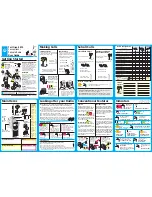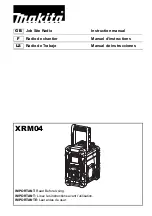
SR2
–
18
58. Install C9, 1µF electrolytic capacitor. Check polarity when installing.
59. Install C11, 10 µF electrolytic. Observe correct polarity before
installing.
60. Install R16, 270 ohm [red-violet-brown].
PROGRESS SUMMARY
Now is a good time to take a break. Examine your work so far checking
things such as component values, parts placement, and solder connections.
Remember the old adage “The bigger the glob the better the job” does not
hold true with RF electronics!
To this point, we have assembled a majority of the receiver. The RF, LO, IF
and Demodulator sections have been built leaving us with the final audio
stage, RSSI circuit, and AGC circuit. Sound like a lot more work? Not at all;
we are going to take advantage of today’s power packed ICs! The LM386
audio chip takes care of our audio needs while the LM358 opamp is used
two-fold in the RSSI and AGC circuits!
61. Install C29, .1µF ceramic disc capacitor [marked .1 or 104].
62. Install U1, the LM358 8 pin IC. Do not confuse it with the other IC;
read the chip marking carefully. You will notice a notch, band or dot on
one end of the IC. This should be oriented as shown on the parts layout
diagram and PC board silkscreen. Be sure the part is seated close to
the PC board before soldering all 8 pins.
63. Install R17, 1K ohm [brown-black-red].
64. Install R18, also 1K ohm [brown-black-red]..
65. Install J2, the subminiature speaker-headphone jack.
66. Install C12, .1µF ceramic disc capacitor [marked .1 or 104].
67. Install R15, 2 ohms [red-black-gold].
68. Next, install U2, the LM386 audio amplifier IC. As with U1, orient
the notched or dotted end as shown in the parts layout diagram and on
the PC board silkscreen. Solder all 8 pins.
69. Install C14, 220µF electrolytic capacitor. The positive lead of the
capacitor must be placed in the hole next to the ( + ) sign.In the same
way,
70. Install C13, placing the positive lead in the correct PC board hole.
Remember, the banded side indicates the negative lead.
•
71. Install the 9-volt battery snap connector, making
sure that the red ( + ) black ( - ) leads are inserted correctly.











































